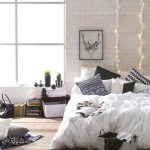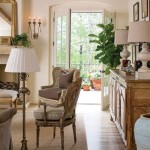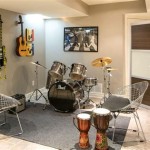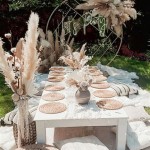Small Meeting Room Decor Ideas
Effective meeting rooms foster productivity and collaboration. In smaller spaces, thoughtful design choices become even more crucial. This article explores various decor ideas to optimize small meeting rooms, enhancing both functionality and aesthetics.
Maximizing Space with Light and Color
Light plays a vital role in perceived spaciousness. Maximizing natural light through large windows or strategically placed mirrors can significantly open up a small room. When natural light is limited, incorporating bright, cool-toned artificial lighting, such as LED panels or track lighting, can create a similar effect. Wall colors also contribute to the perception of size. Lighter shades, like soft whites, creams, or pastels, reflect light, making the room appear larger. Accent walls in slightly bolder colors can add visual interest without overwhelming the space.
Strategic Furniture Selection
Furniture choices significantly impact a small meeting room’s functionality. A multi-purpose table, easily configurable for different meeting types, offers flexibility. Consider round or oval tables, which promote conversation and take up less visual space than rectangular options. Choose chairs that are comfortable yet compact, and avoid bulky armrests that can crowd the room. Mobile storage solutions, such as rolling cabinets or wall-mounted shelves, keep materials organized without consuming valuable floor space.
Integrating Technology Seamlessly
Technology is integral to modern meetings. Incorporating technology seamlessly is key to maintaining a clean and functional space. Wall-mounted screens or projectors save space compared to bulky stands. Cable management systems, such as cord covers and under-table organizers, keep wires concealed and prevent clutter. Consider integrating wireless presentation systems to eliminate cable clutter entirely, promoting a clean and professional aesthetic.
The Impact of Visual Elements
Visual elements contribute significantly to the overall atmosphere of a meeting room. Strategically placed artwork or wall graphics can add personality and visual interest without overwhelming the space. Consider using large-scale art pieces to create a focal point and draw the eye outwards, making the room feel larger. Avoid cluttering the walls with too many small pictures, which can have the opposite effect.
Biophilic Design Principles
Incorporating elements of nature can improve focus and creativity. Introducing plants, either potted or in vertical gardens, adds a touch of life and color to the room. Natural materials, such as wood or stone accents, can further enhance this biophilic design approach, creating a calming and productive environment.
Acoustic Considerations
Effective sound management is essential for productive meetings, especially in smaller spaces. Sound-absorbing materials, such as acoustic panels, rugs, or curtains, can minimize echoes and reduce noise distractions. These elements can be incorporated aesthetically, contributing to the overall design while enhancing functionality.
Creating a Focal Point
A well-defined focal point can anchor the room and create a sense of visual balance. This could be a striking piece of artwork, a feature wall with a unique texture or color, or even a strategically placed window with an attractive view. The focal point draws the eye and helps to define the space, creating a more cohesive and visually appealing environment.
Utilizing Vertical Space
In smaller rooms, maximizing vertical space is essential. Tall bookshelves, wall-mounted storage, or vertical gardens can add functionality without taking up valuable floor space. This allows for better organization and a less cluttered environment, promoting a sense of spaciousness and efficiency.
Flexibility and Adaptability
Designing for flexibility is crucial in a small meeting room. Modular furniture, foldable tables, and stackable chairs allow the space to be easily reconfigured for different meeting types and sizes. This adaptability ensures the room remains functional and efficient for a variety of purposes.
Personalization and Branding
Subtle branding elements can reinforce company identity and create a sense of professionalism. This could include incorporating company colors in the decor, displaying company logos tastefully, or showcasing company achievements through framed certificates or awards. These elements should be integrated thoughtfully to avoid overwhelming the space.
Maintaining Minimalism
A minimalist approach is often the most effective in small spaces. Keeping the decor simple and uncluttered allows the room to feel more open and spacious. Avoid overcrowding the room with furniture or decorative elements. Prioritize functionality and choose pieces that serve a specific purpose.
Regular Decluttering and Organization
Maintaining a clutter-free environment is essential for a productive meeting space. Regular decluttering and organization ensure the room remains functional and visually appealing. Implement clear storage solutions and encourage users to keep the space tidy after each meeting.

97 Interior Design Conference Room Ideas In 2025

Small Conference Room Ideas Design Office Interior

7 Modern Conference Room Design Ideas For 2025 Bluewater

21 Conference Room Designs Decorating Ideas Design Meeting Office

7 Modern Conference Room Design Ideas For 2025 Bluewater

Modern Conference Room Design Ideas For Stimulating Meetings Blog

5 Conference Room Layout And Design Ideas For 2025 Teem By Ioffice

Conference Room Ideas 9 Tips To Spark Innovation Officespace

5 Conference Room Layout And Design Ideas For 2025 Teem By Ioffice

Office Meeting Room Designs







